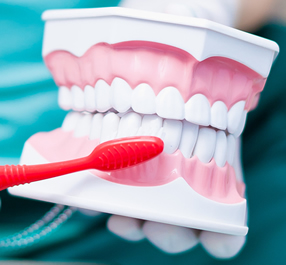If you have not been to the dentist lately, you may need to consider making an appointment soon.
 Good dental hygiene is important to improve your overall health and wellbeing.
Good dental hygiene is important to improve your overall health and wellbeing.
September is National Oral Health Month and Vuk’uzenzele has put together some tips to help you on your way to good oral hygiene.
Why is it important to have good oral health?
Keeping your teeth free of plaque, acidity and bacteria is vital for protecting them from unpleasant and often even painful and harmful oral diseases, such as gum disease or cavities.
What is gum disease?
Severe gum disease, often referred to as periodontitis, is an infection that affects the soft tissue and bone supporting the teeth.
What are the symptoms of gum disease?
- Swollen, red gums that feel tender to the touch
- New spaces appearing between your teeth
- Sores and/or pus between your teeth and gums
- Bad smelling breath
- An unpleasant taste in your mouth
- Tooth loss.
What causes gum disease?
It is thought that gum disease is caused by plaque, which is the creamy white substance that forms on your teeth after eating certain sugars. Plaque consists mostly of bacteria and can be removed by brushing your teeth. However, plaque commonly reforms within 24 hours and it is therefore important to brush and floss your teeth regularly.
What are cavities?
Cavities are areas on your teeth where permanent damage has occurred, resulting in little holes. You may have heard of cavities being referred to as tooth decay or caries. Most people will develop cavities, which can occur at any age. If left untreated, cavities can grow and penetrate into deeper layers of the tooth.
What are the symptoms of a cavity?
If you have a cavity, you may experience the following symptoms:
- Toothache
- Sensitive teeth - pain or discomfort when eating of drinking something cold, hot or sweet
- Pain when you bite down
- A visible hole in your tooth.
What can I do to prevent oral disease?
These basics are a good place to start, and your dentist will tell you if there are any further steps you need to take:
- Brush your teeth with fluoride toothpaste at least twice a day
- Rinse your mouth out with anti-microbial mouthwash daily
- Reduce your intake of sugar and try to maintain a healthy, balanced diet
- Stop smoking
- Visit your dentist regularly.
* Supplied by: Government Employees Medical Scheme



 Facebook
Facebook Twitter
Twitter WhatsApp
WhatsApp